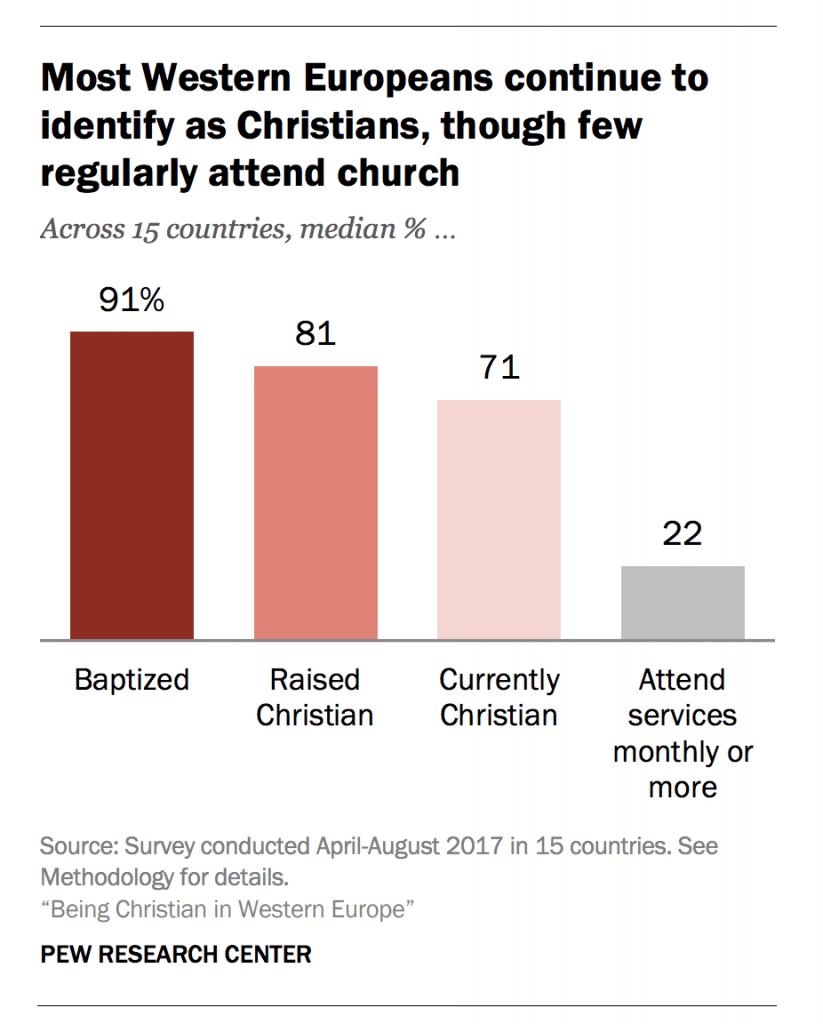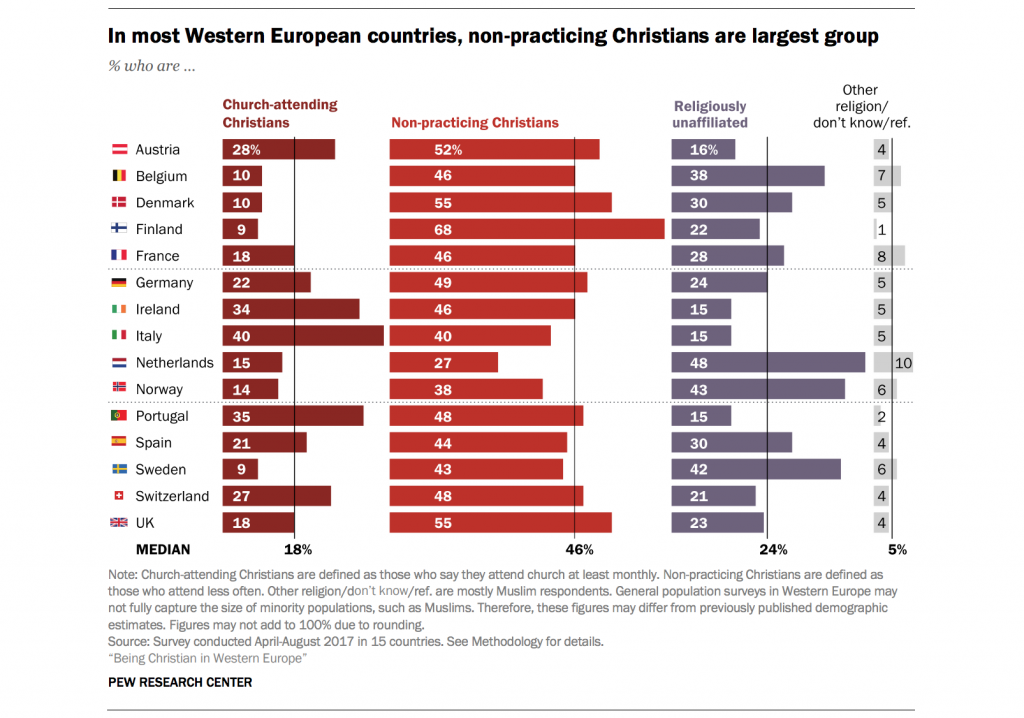A new survey from the Pew Research Center finds that Western Europeans are far more religious than you might think, at least based on their self-reported labels… but the Christians-in-name-only — the ones who don’t go to church regularly — don’t do the things we normally associate with religious people.
For example, while 71% of Western European citizens would call themselves Christian, only 22% attend church at least once a month.

Those “non-practicing” Christians are the largest demographic group in many nations. And if it’s not them, it’s the people without religion (click to enlarge):

And yet when those “non-practicing” Christians were asked if they planned to raise their children as Christians, an astonishing 87% said they would. Why? Because, I would think, we’re talking about people who find value in the label of Christianity if not the actual beliefs. They think it’s good to be a Christian even if you aren’t a churchgoer and even if you don’t believe all the myths. That’s why they cling to the word even though they don’t show it through their actions, and it’s why they plan to stick that label on their kids.
That label — and remaining in that tribe — has consequences. Like when it comes to the immigration debate:
Most Western Europeans say they are willing to accept Muslims and Jews in their neighborhoods and in their families, and most reject negative statements about these groups. And, on balance, more respondents say immigrants are honest and hardworking than say the opposite.
But a clear pattern emerges: Both church-attending and non-practicing Christians are more likely than religiously unaffiliated adults in Western Europe to voice anti-immigrant and anti-minority views.
While 42% of Western Europeans say “Islam is incompatible with national values,” the numbers are 45% for non-practicing Christians and 49% for church-attending Christians. They drop to 32% for people who are unaffiliated with a church.
On other social issues, though, like abortion rights and LGBTQ rights, the non-practicing Christians and the Nones were roughly identical, with both groups likely to support those issues far more than churchgoing Christians.
There’s a lot of data here, but here’s what Pew cites as the takeaway:
Overall, the study shows a strong association between Christian identity and nationalist attitudes, as well as views of religious minorities and immigration, and a weaker association between religious commitment and these views. This finding holds regardless of whether religious commitment among Christians is measured through church attendance alone, or using a scale that combines attendance with three other measures: belief in God, frequency of prayer and importance of religion in a person’s life.
I find that easy to believe. A lot of people call themselves Christian as a means to an end, not because they necessarily buy into the doctrine. Coming from a nation where our president is Christian but whose life resembles Jesus in no meaningful way, I’m used to it.




It’s Moving Day for the Friendly ..."
It’s Moving Day for the Friendly ..."
It’s Moving Day for the Friendly ..."
It’s Moving Day for the Friendly ..."